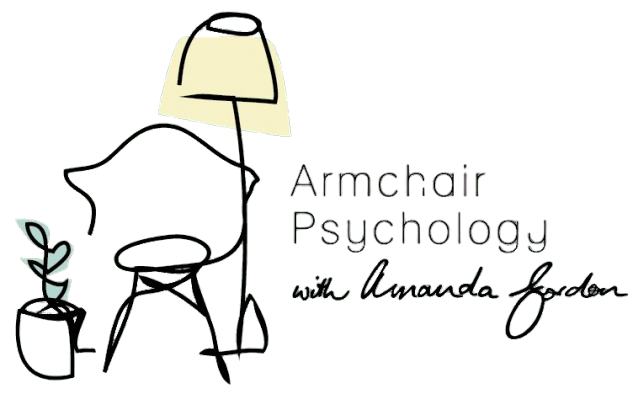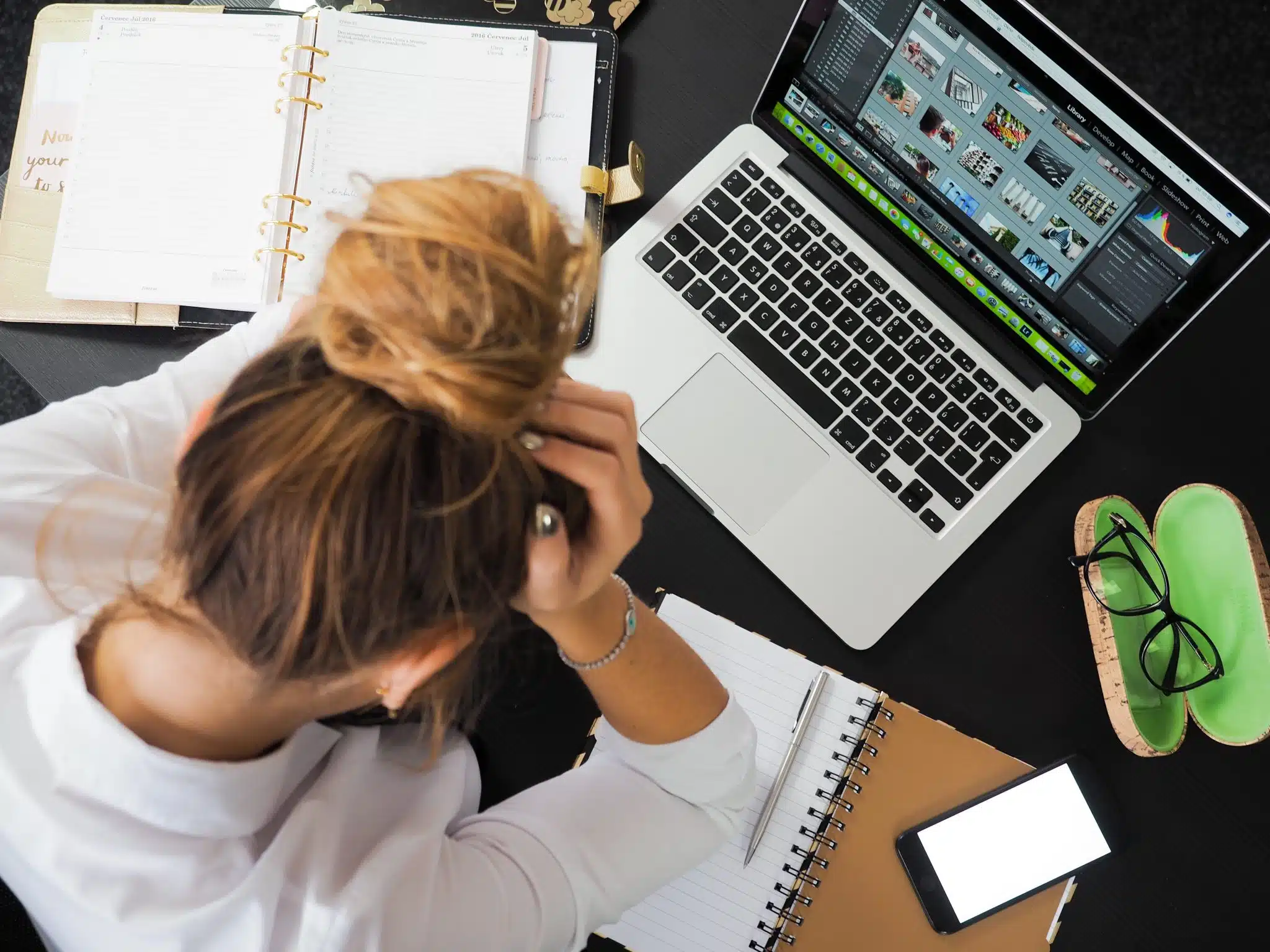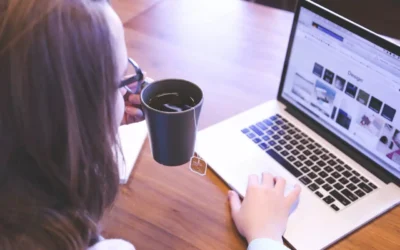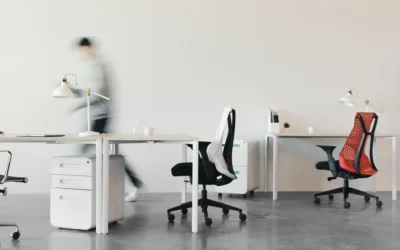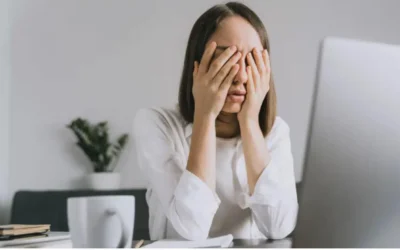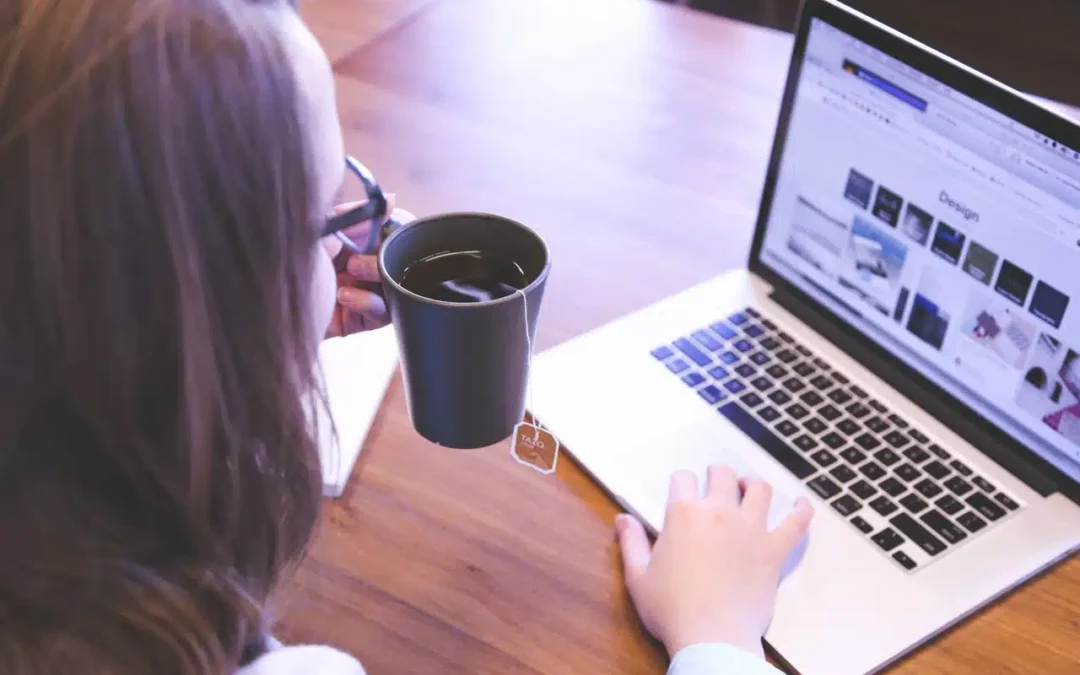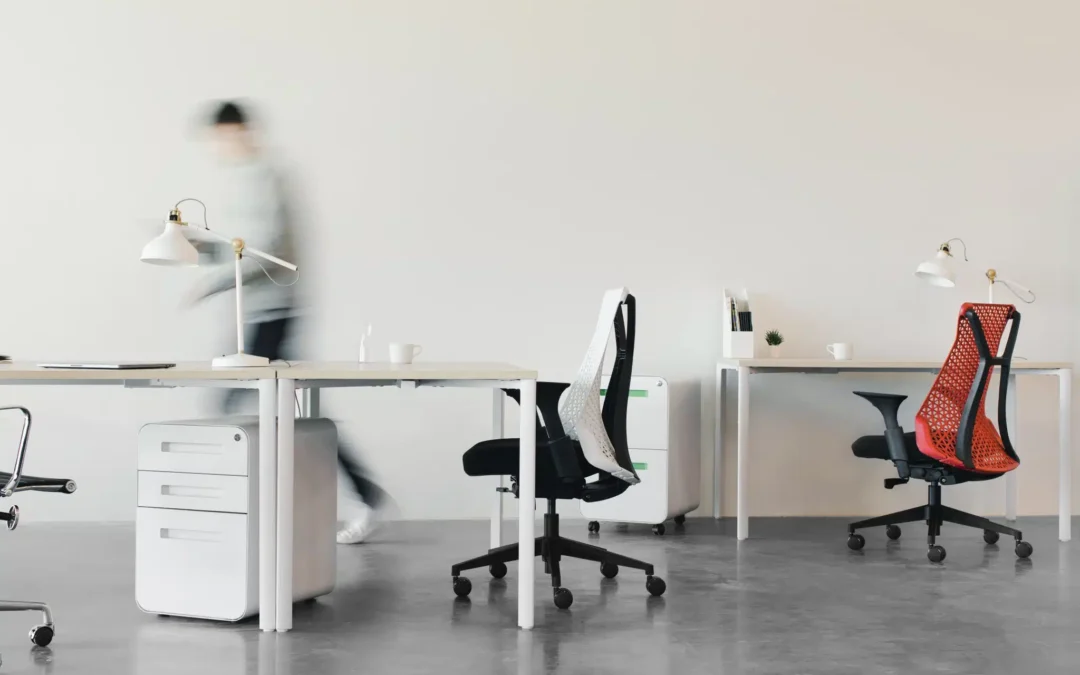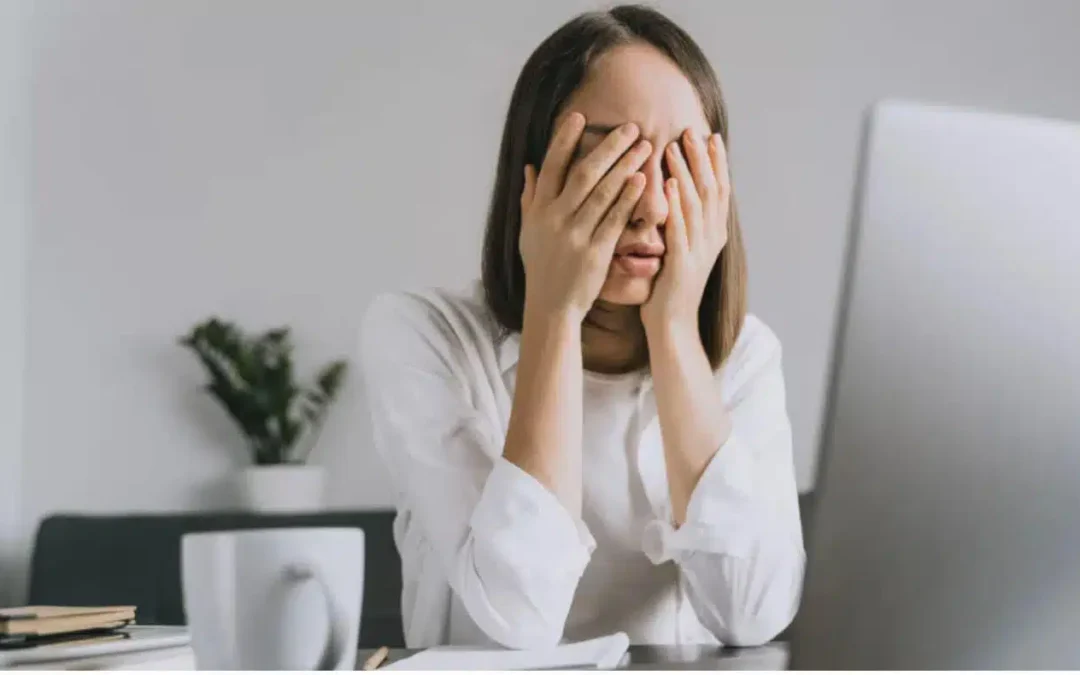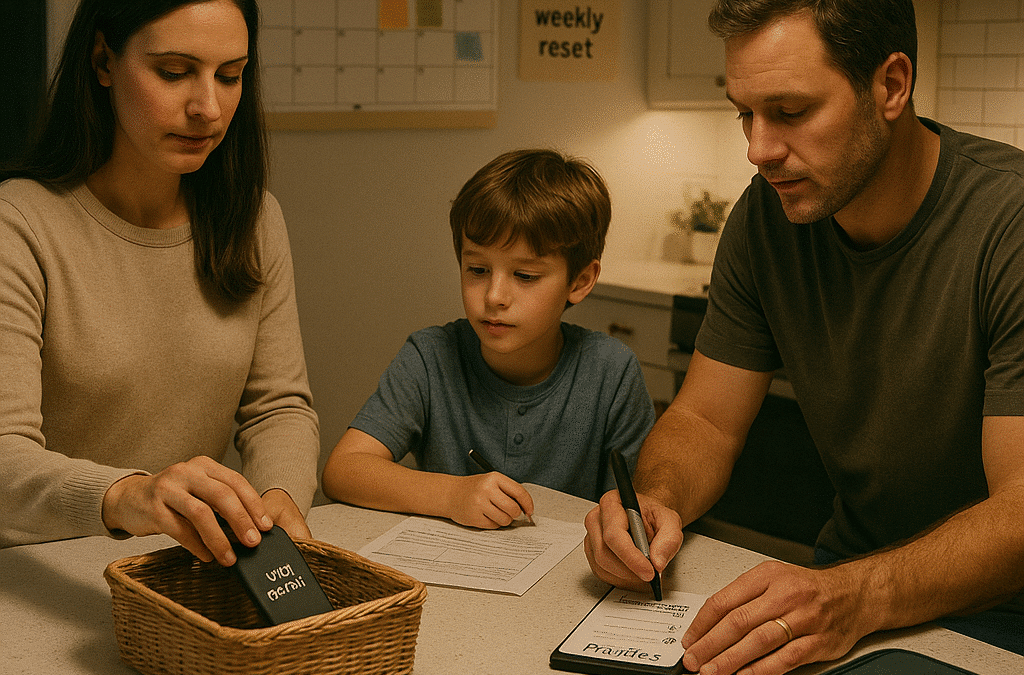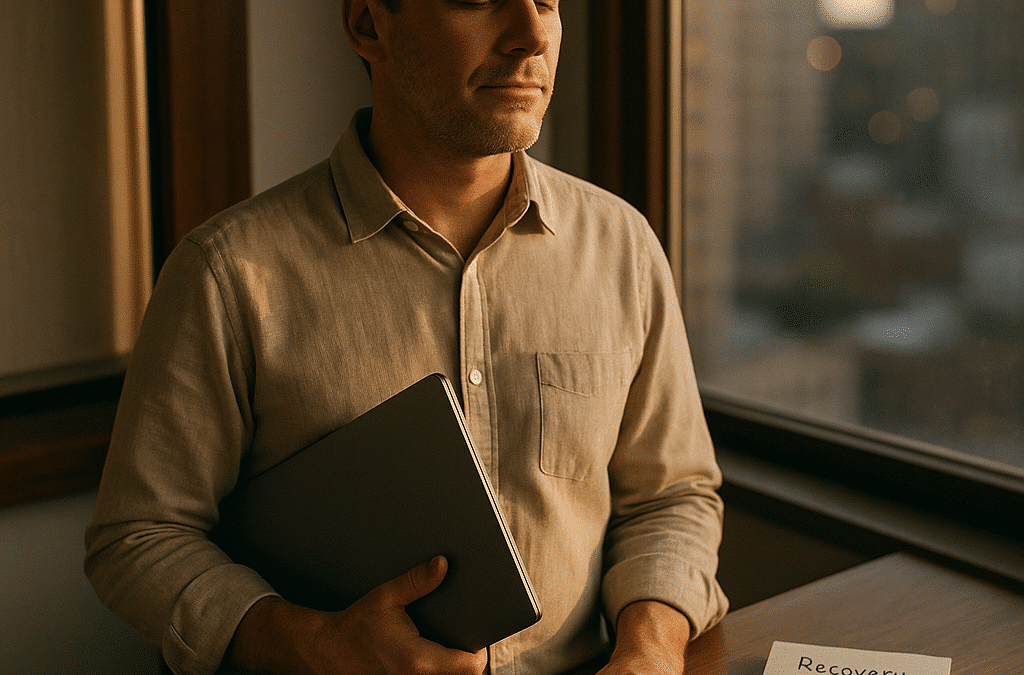End of year burnout can feel like you’re limping to the end. Like there’s a chain around your ankles, weighing down every tiny step you make to that distant finish line.
At this time of year where workplace closure and Christmas chores collide, it can be a period of added workload and strain. As though your mind is an elastic band, already stretched to its breaking point, ready to snap with just one more pull.
“They know there is a break coming,” Amanda Gordon, an Associate Professor and Director at Armchair Psychology, tells Mamamia, “but there’s a lot of pressure on people to complete everything before the year has ended and it feels like such a long way away until it actually stops.”
Burnout is a real syndrome, recognised in May this year by the World Health Organisation who labelled it as an “occupational phenomenon” caused by chronic stress in the workplace.
So, how do you know if you’re actually suffering from this end of year burnout?
Psychologist Amanda Gordon has shared the symptoms and signs along with ways to manage until your holiday arrives.
The signs and symptoms of burnout.
According to Gordon, emotional symptoms include irritability, feeling miserable, easy tearfulness, sleep disturbance and nightmares. As for physical symptoms, Gordon explains the main sign is exhaustion, as well headaches, aches and pains. Plus, Gordon adds: “If you’re choosing to have alcohol to calm down at the end of the day, it’s always dangerous.”
Listen: How to know if you’re suffering from burnout.
So, what can you do about feeling burnt out?
“Treat yourself as though you are recovering from a physical illness,” the psychologist tells Mamamia.
“Eat well, get as much sleep as you can and try to pace yourself as much as you can at work.”
Gordon adds that taking proper breaks during the workday for lunch, having decaffeinated drinks and, if you can, ending your day at a reasonable time are all ways to manage the feeling of burnout while still doing your job.
“Go home smiling.”
How to recover from burnout once you’re on holidays.
“It takes time to recover,” Gordon says. “You’re not going to feel better in a day.”
“You really need to take time out for yourself so you can care for yourself,” she says, adding that diet and doing “gentle” exercise are important methods of self-care, as well as spending time with friends and family.”
“One of the most important things to do is turn off your email when you go home. When you’re on holidays, don’t look at your email, monitor your phone calls and only take the personal and social ones.
“If you’re actually on leave, then be on leave. Then you’ll really have a break and you’ll go back to work refreshed, instead of remaining exhausted.
“Have a proper distinction between work and home.”
How to prevent burnout next year.
“Recognise that work is part of your life, but not your full life,” Gordon says.
“But also, once you achieve something, give yourself a pat on the back and make sure you stop and breathe.
“It’s the way you pace yourself that is so very important; set yourself legitimate daily goals and cross them off as you achieve them.
Gordon also cites a certain trend in Australia that can be detrimental.
“There is this habit in Australia – which is not necessarily the healthiest one – to take no break at all for 11 months and then have four weeks off at the end,” she explains.
“I think there’s something to be said for splitting up your holiday. We are blessed in Australia with a reasonable amount of holiday for the year, and if people were to use it to have a few long weekends along the way, or a week off in the middle of the year, they’d probably do a whole lot better, even if they only get three weeks at the end of the year.”
Who is most at risk of burnout?.
Burnout does not discriminate in who it affects.
Gordon mentions parents in particular can suffer from end-of-year burnout when they have the added load of school concerts, prize-giving ceremonies, and arranging childcare for when schools close.
On top of this, Gordon explains, the alcohol that often comes with end of year celebrations only adds to the exhaustion.
“People, especially in the big cities in Australia, feel under immense pressure much more of the time now, so just adding that tiny little bit extra can be enough to make them feel like they’re tipping over.”
What’s clear is that being aware of your burnout is the first step, of what sometimes can feel like an endpoint.
Amanda Gordon is a psychologist and the Director at Armchair Psychology, located in Sydney’s Eastern suburbs. To book an appointment with Amanda or one of our other psychologists contact us.
